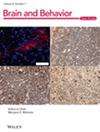Combined Administration of Lactobacillus or Bifidobacterium Offers Enhanced Antidepressant and Anxiolytic Activity in a Dose Dependent Manner
Abstract
Purpose
Gut microbiota is strongly linked to the activity of the bidirectional gut-brain axis, which influences neuropsychological processes at multiple levels. Changes in the gut microbiota have been implicated in mood disorders, and probiotics have been explored for their ability to mitigate the effects of stress on mental health. Here, we investigated the therapeutic benefits of different concentrations and combinations of Lactobacillus and Bifidobacterium in a mouse model of stress induced depression and anxiety.
Methods
Sixty-three male ICR mice (6–8 weeks old; 20–25g) divided into nine groups were used for this study. The test groups underwent chronic unpredictable mild stress protocols for two weeks before receiving low (104 CFU/ml) or high (108 CFU/ml) doses of either monotherapy (Lactobacillus or Bifidobacterium) or a combination therapy (Lactobacillus and Bifidobacterium) for four weeks. The antidepressant, fluoxetine, served as the positive control. Measurements of weight and sucrose preference were performed at four time points in addition to a battery of behavioral tests (open field tests, forced swim test, tail suspension test, and hot plate test) at the endpoint to assess depression and anxiety-like behavior.
Results
Low doses of the probiotic formulation (mono- or combined therapy) reversed weight loss but not anhedonia. In contrast, high doses of probiotic formulations (mono- or combined therapy), along with fluoxetine, were effective in reversing the weight loss and anhedonia caused by chronic unpredictable mild stress. Probiotics ameliorated stress-induced immobility as measured by both the forced swim and tail suspension tests, while also reducing anxiety-like behavior (increased peripheral activity) in the open field test. High doses of mono- or combined therapy increased curling behavior in the tail suspension test, whereas fluoxetine failed to do so.
Conclusion
This study indicates the species- and dose-dependent beneficial effects of probiotics on behavioral outcomes associated with depression while also reversing weight loss. Evidence suggests that probiotics and fluoxetine may exert antidepressant activity via different mechanisms.

 求助内容:
求助内容: 应助结果提醒方式:
应助结果提醒方式:


